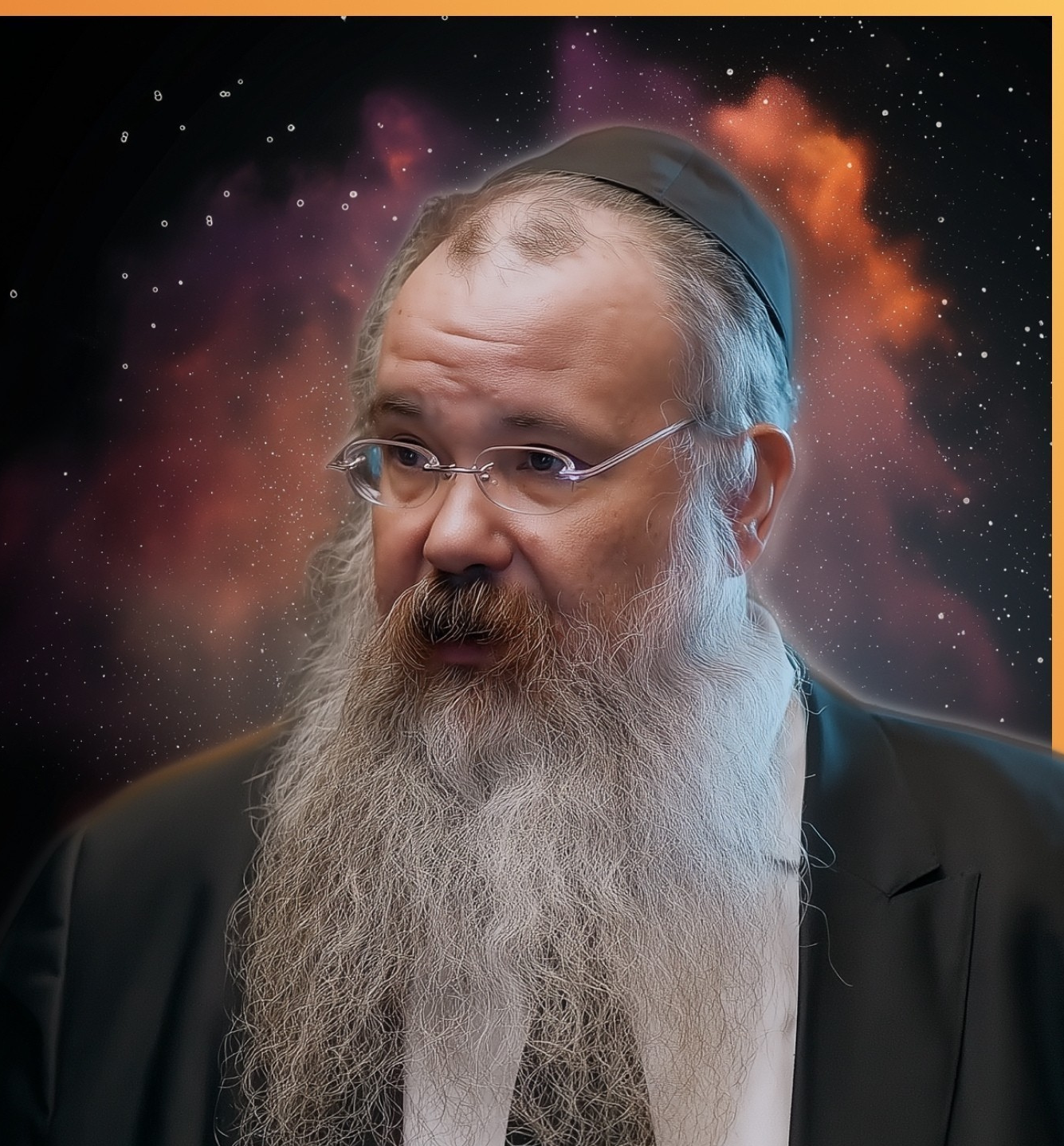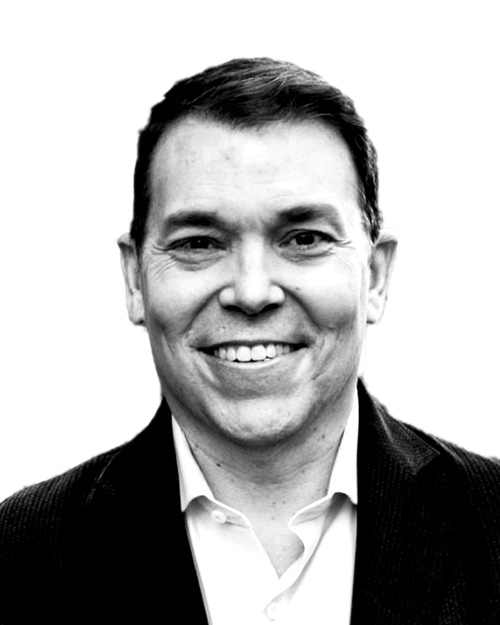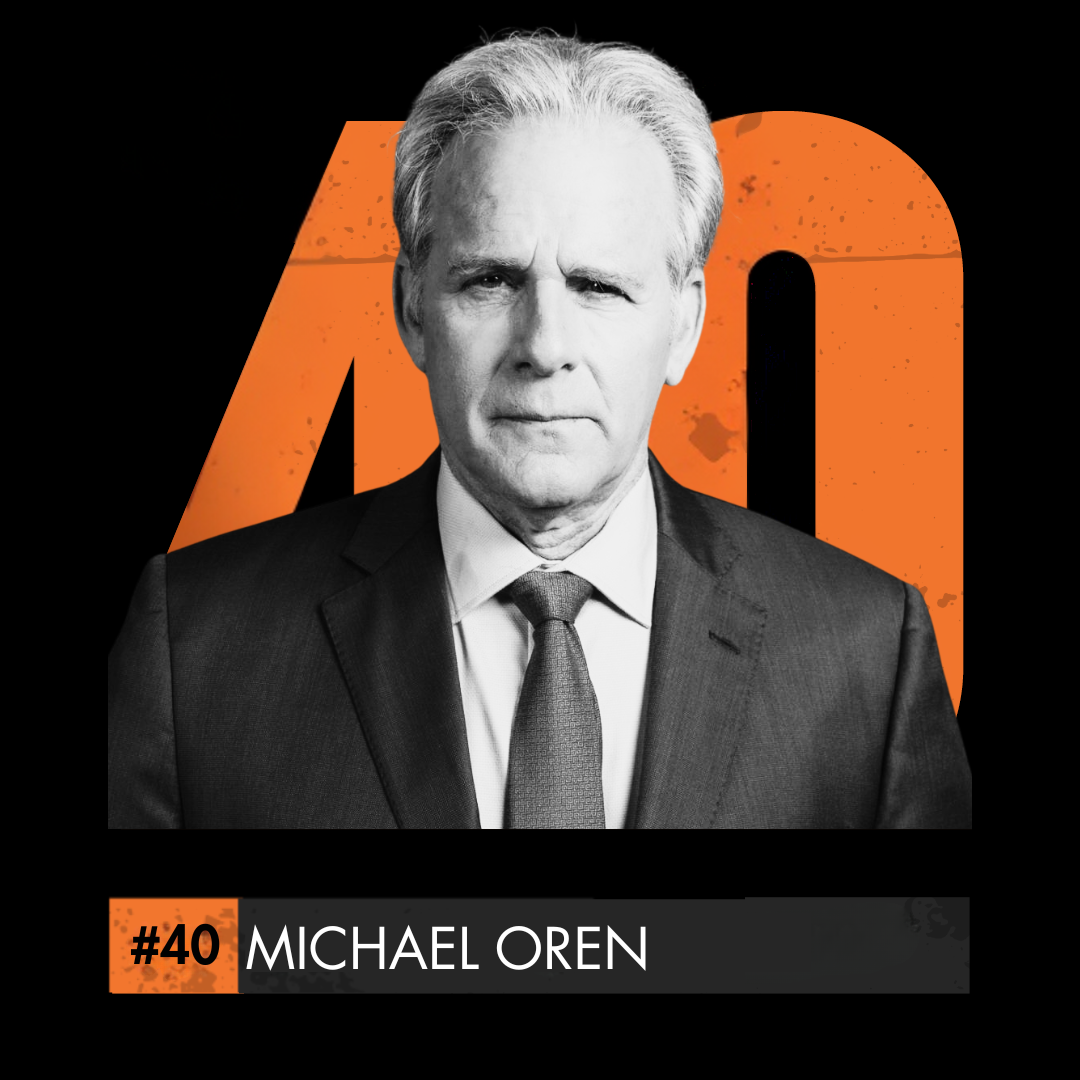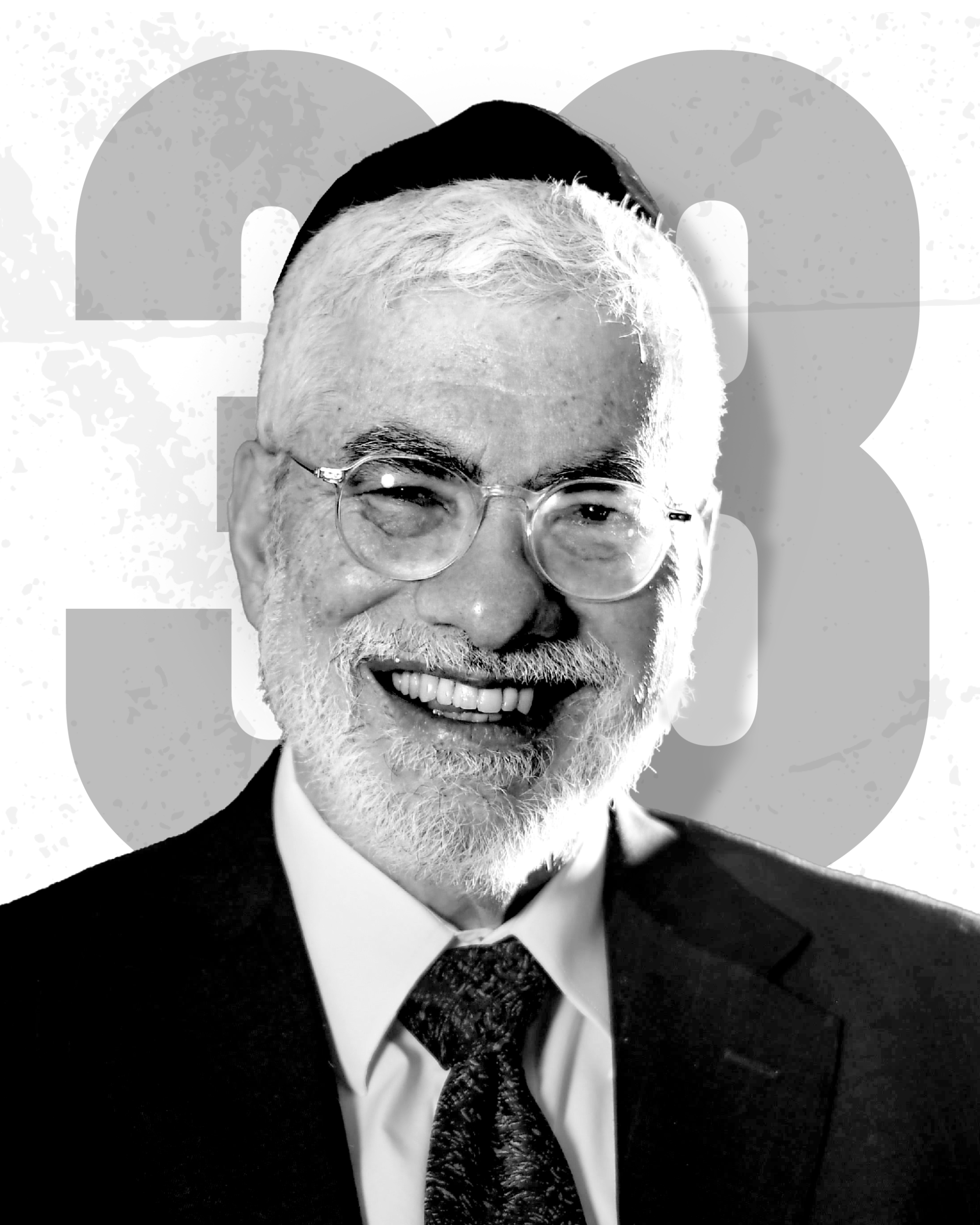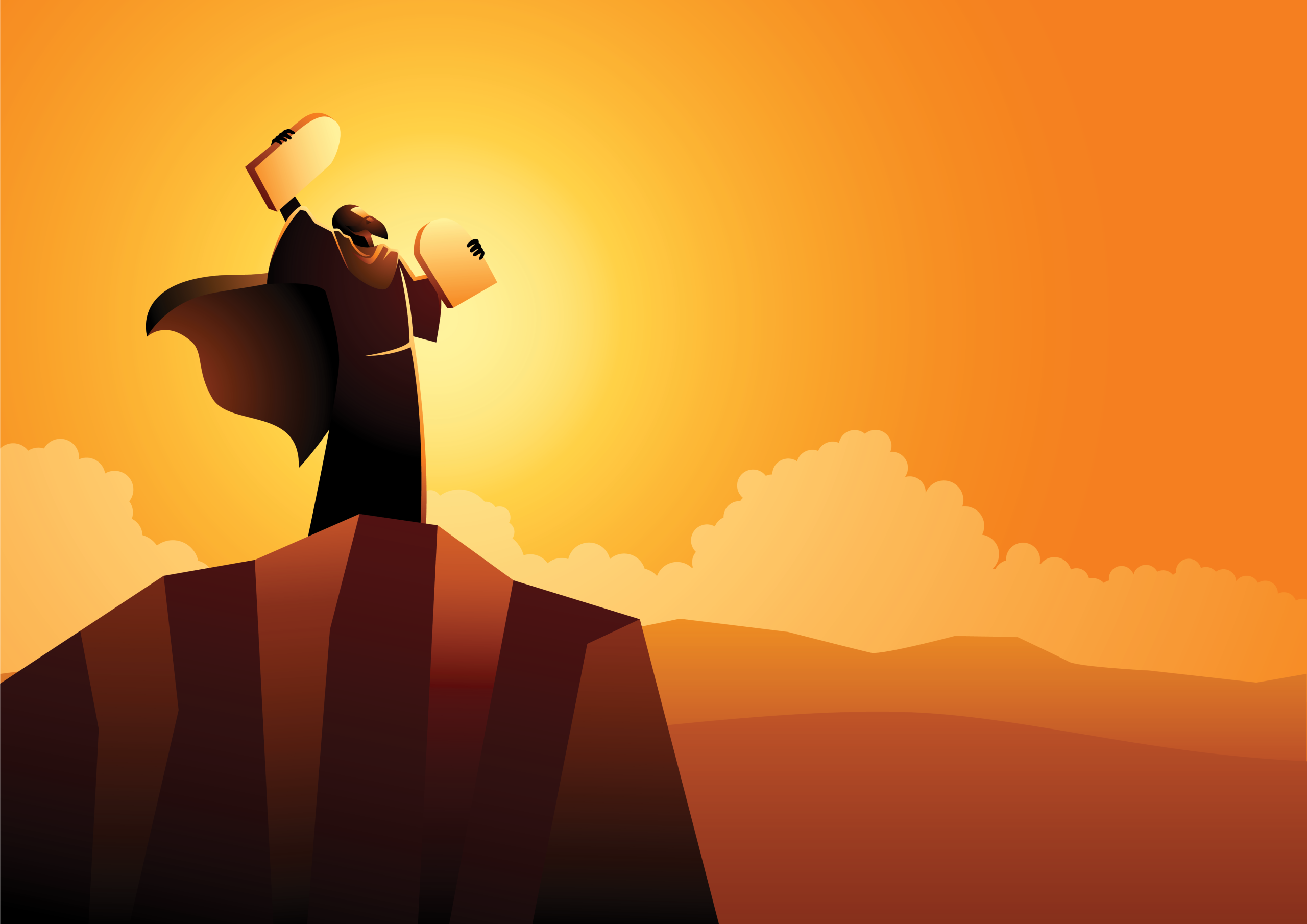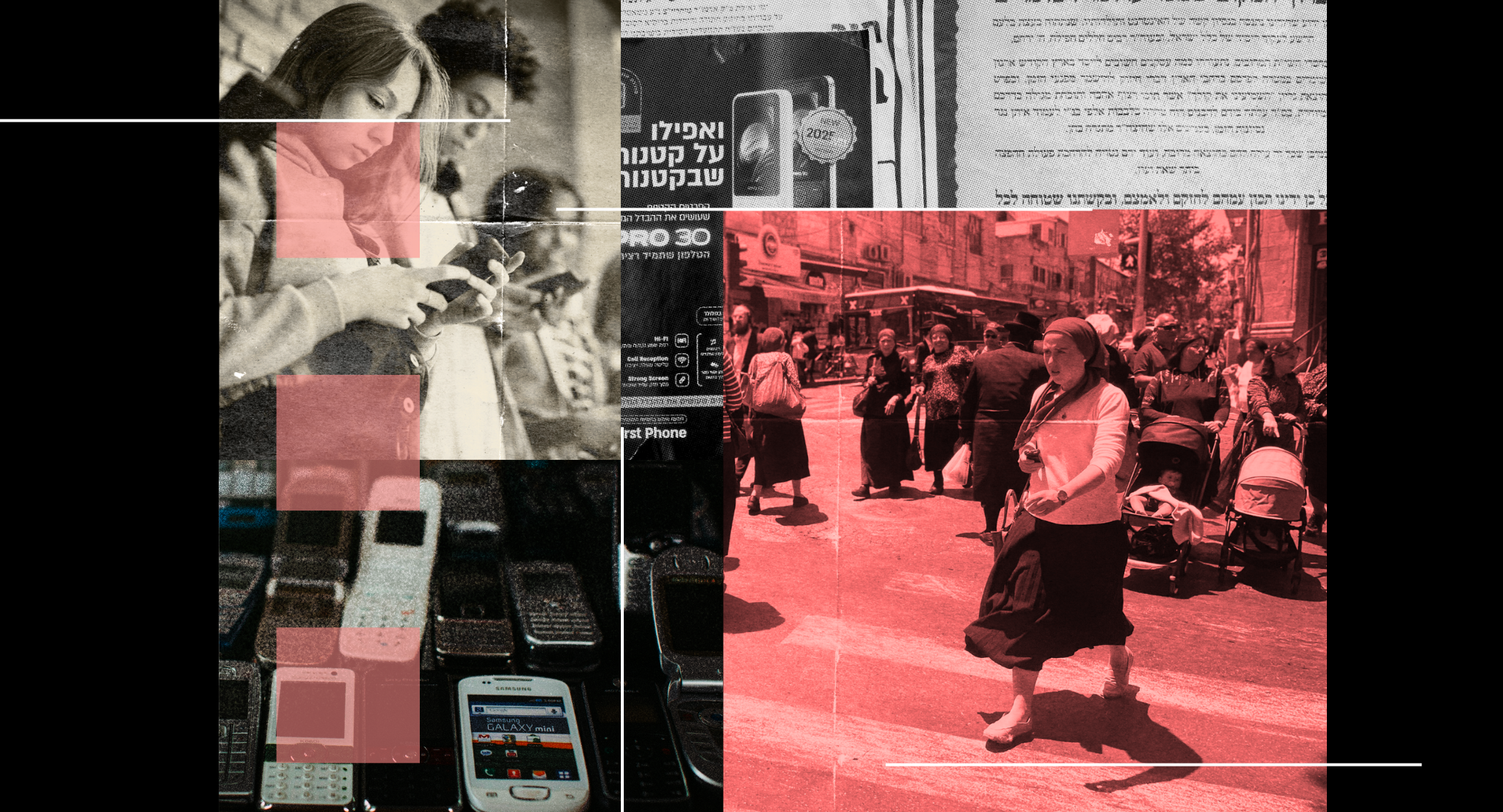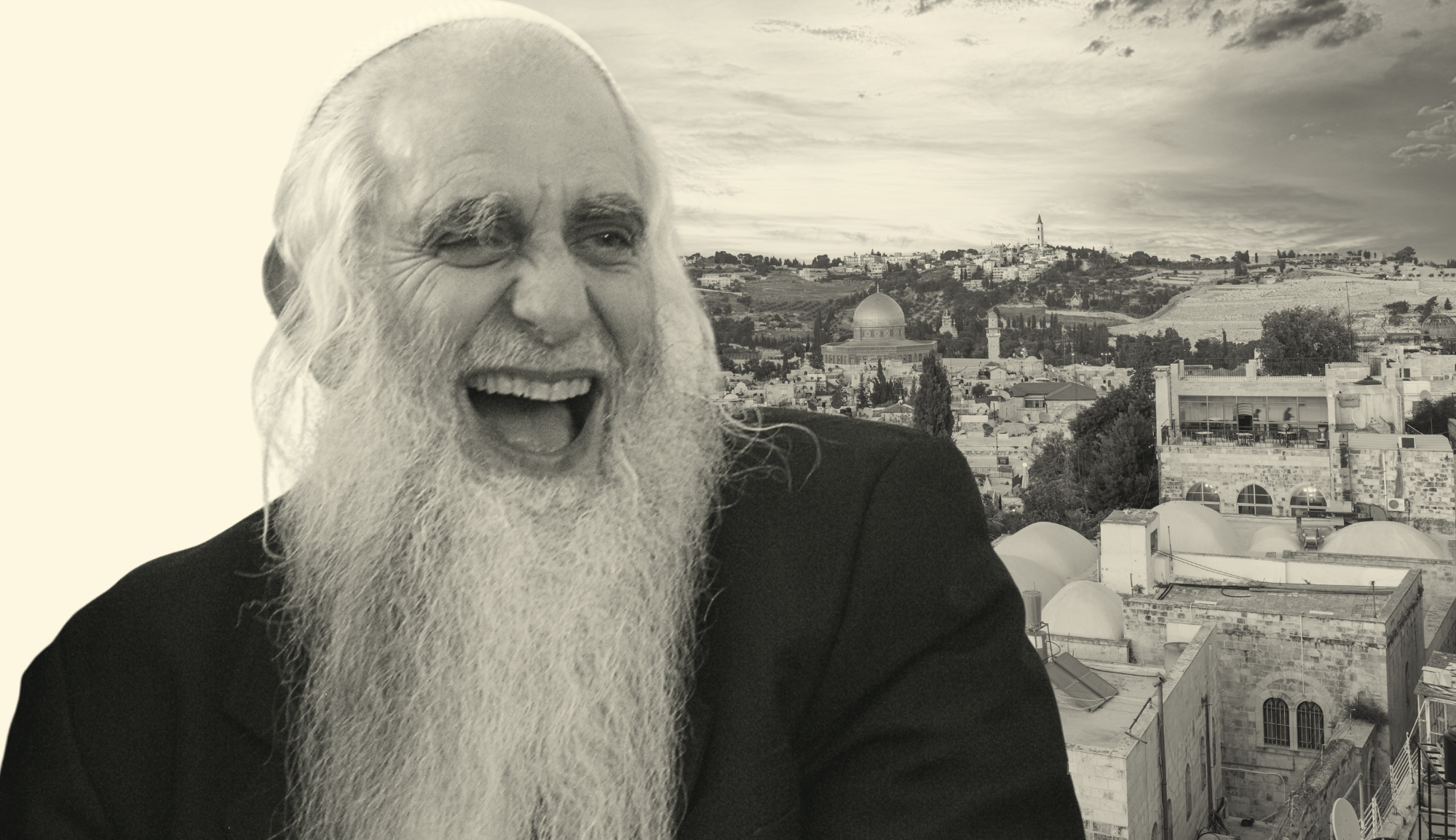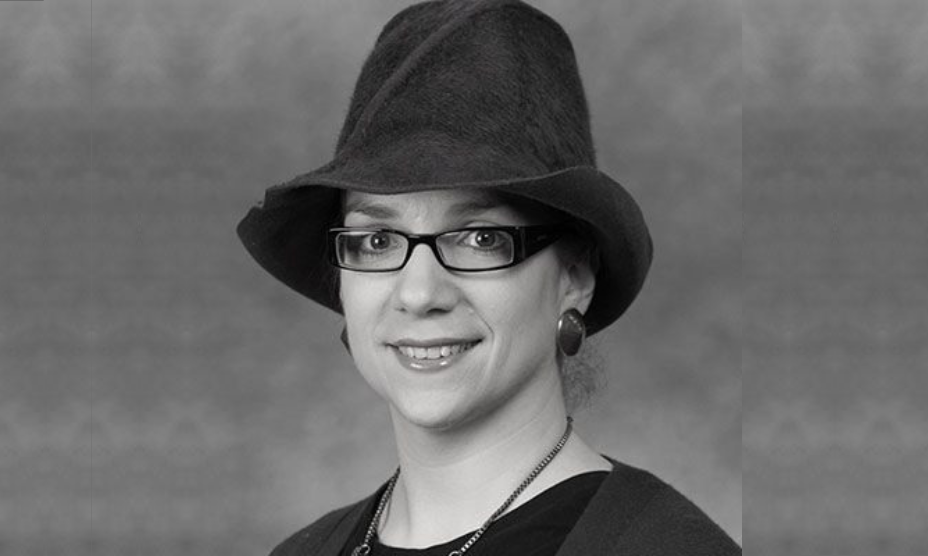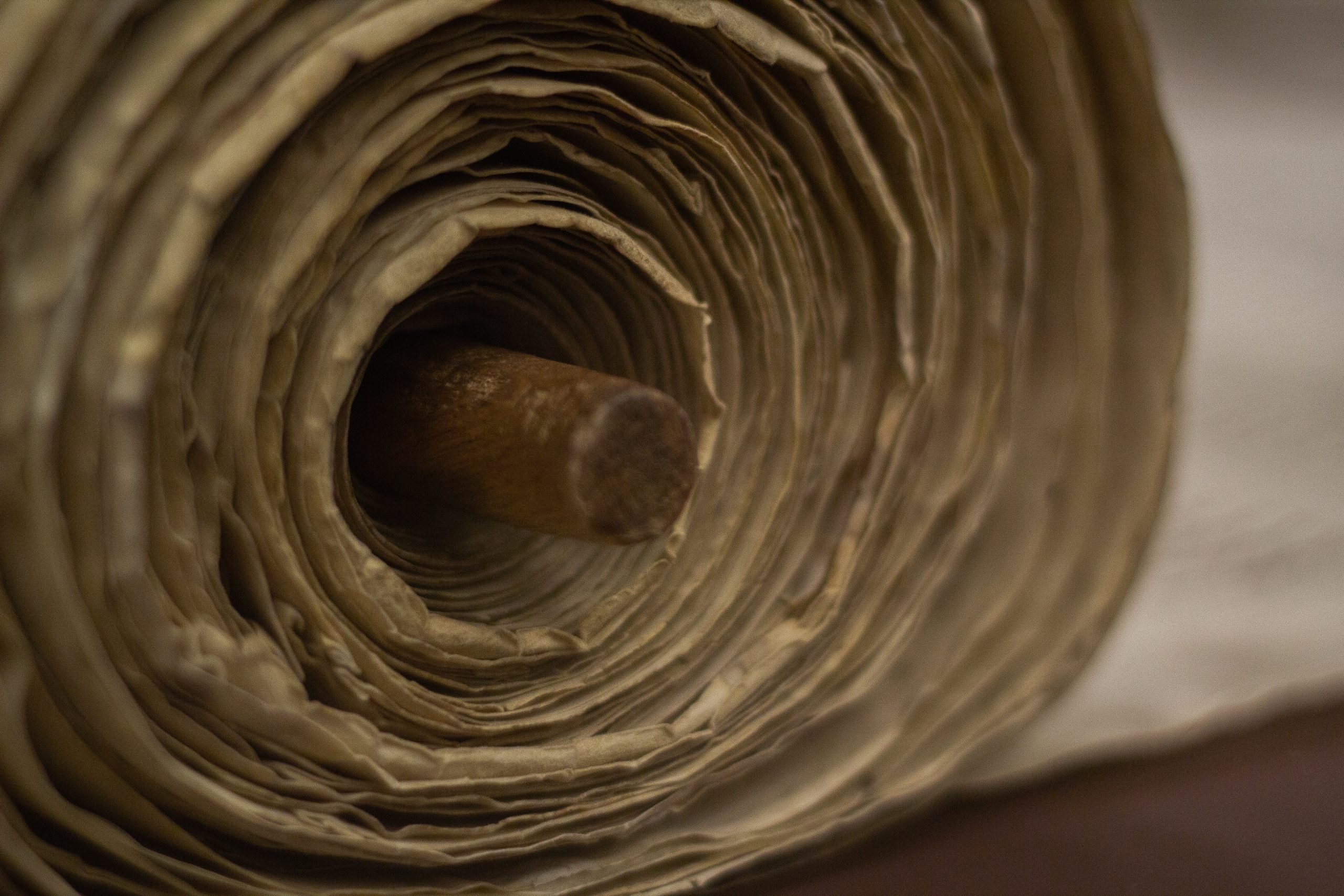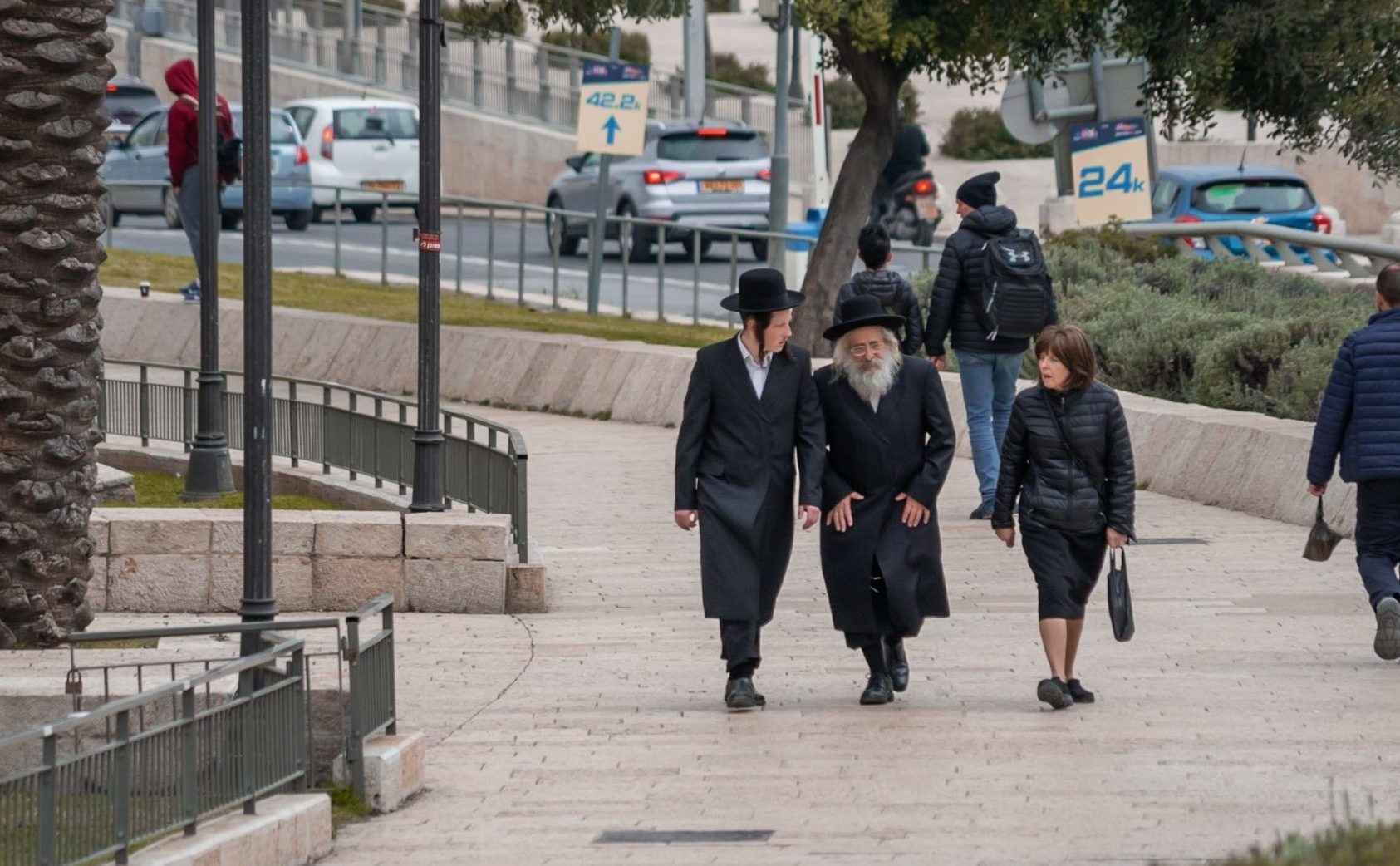386″ src=”http://upgrapp.com/18forty/wp-content/uploads/2020/05/Listen_Apple.png” alt=”Listen_Apple_Button” width=”161″ height=”48″ />![]()
![]()
Bethany S. Mandel: Jews without Community
In this episode of the 18Forty Podcast, we sit down with conservative journalist and cultural commentator, Bethany S. Mandel, to talk about the entrances and exits of her life, reconstructing Jewish identity, and creating a Jewish home outside of the Jewish community.
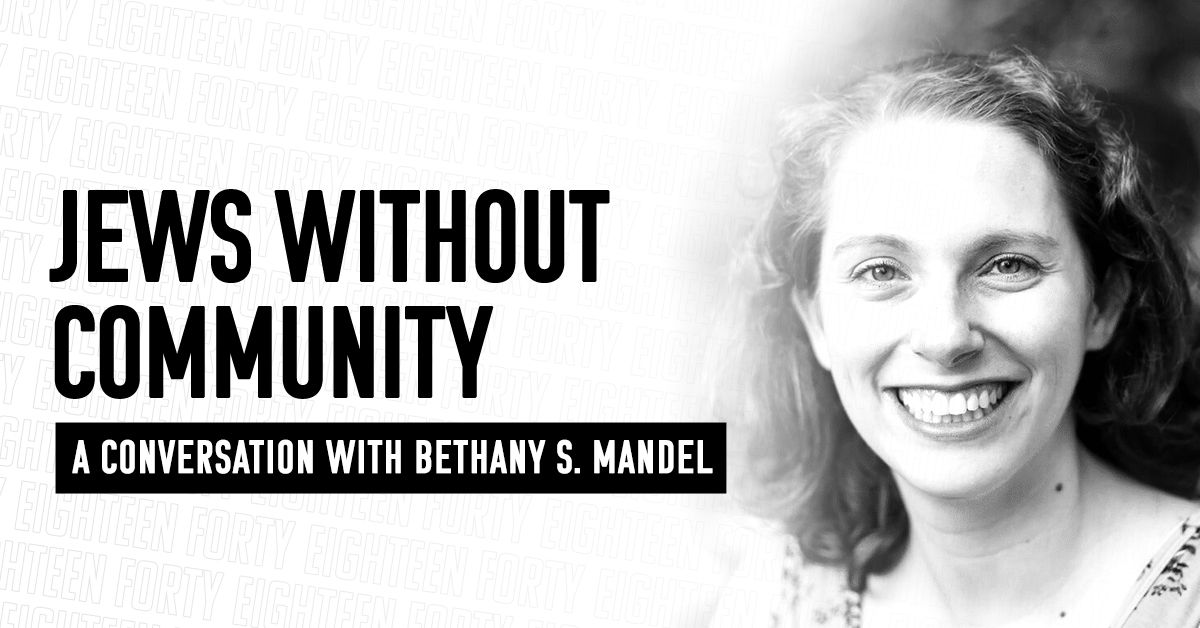
Summary
In this episode of the 18Forty Podcast, we sit down with conservative journalist and cultural commentator, Bethany S. Mandel, to talk about the entrances and exits of her life, reconstructing Jewish identity, and creating a Jewish home outside of the Jewish community.
Bethany has written for the New York Times and Washington Post, and now serves as an opinion columnist for the Forward, a contributor to the Washington Examiner’s Beyond the Beltway blog, and is an editor at Richocet.com. She is a sharp writer and speaker about Jewish communal life, particularly about conversion, and has written about the impact of the Freundel affair on her life.
- Can one be a member of the Jewish community while living outside the institutions that constitute the community?
- Can you love Judaism, but not Jews?
- How does one deal with disappointment in Judaism, particularly at the hands of a Jewish leader?
- How can we build reconciliation and create a more empathetic community?
Tune in to hear Bethany discuss the relationship between Jews and the Jewish community, and why her Jewish community is her home.
David Bashevkin:
Welcome to the 18Forty podcast, where each month we explore a different topic balancing modern sensibilities with traditional sensitivities to give you new approaches to timeless Jewish questions. I’m your host, David Bashevkin, and this month we’re exploring Jewish peoplehood. This podcast is part of a larger exploration of big Jewish questions, so be sure to check out 18forty.org, that’s one eight F-O-R-T-Y dot org, where you can find videos, articles and recommended readings.
My conversation today is with Bethany Mandel, who is a renowned writer and editor, who has an incredible Jewish story that I wanted to explore more, particularly in the context of Jewish peoplehood. I remember, a whole bunch of years ago I visited my rebbe when I was studying in Ner Yisrael, and I remember I told him that we always talk about yeshiva guys, and they’re referred to as a “yeshiva bachur”, and I said, “What I’m struggling with is, where does the yeshiva end and the bachur begin, so to speak? Where does my commitment, my relationship with Judaism, how do I know where that ends and where the yeshiva begins and vice versa?” Because sometimes when you’re in such an insulated environment of yeshiva, which is such amazing years, whether it’s yeshiva, or seminary, or school, high school, like so many of your religious decisions, so to speak, are being made by the institution. And you always wonder, “How much of it is me? How much of it do I really want?” And for most people, they’re never really forced to confront that question, maybe until they’re much older. Some people look at it in their late 20s, in their 30s as they’re raising kids, and they have to ask for the first time, “What’s you? What’s you in all this?” Rav Hutner, the famed Rosh Yeshiva of Chaim Berlin, has a famous letter where he describes it as taking a boiling pot off of a flame. And he says that you only realize how much water is in the pot after it’s off the flame. Much of our conversation with Bethany is about that question.
Bethany has a fascinating story that intersects with the notion of being part of the people, being part of the community, and what’s left when you no longer choose to associate in the way that you once did. She’s remarkable for a host of reasons aside from her professional accomplishments as a writer and an editor. She’s remarkable because her story of coming to Judaism as a convert, and then converting through Rabbi Freundel, the disgraced Rabbi of Kesher Israel, who was caught filming women in the mikvah, one of the most disgusting tragedies in all of Jews history. And at a certain point, Bethany almost had to reconstruct her Jewish identity and imagine, “Do I have a community where I feel comfortable,” and really wrestle with the notion of, how do you judge Judaism? I know so many people think, they say, “Don’t judge Judaism by the Jews,” it’s a famous statement. And like her, I myself have always kind of bristled at that notion. How else should you judge it? Of course you should, there’s a component of the way Jewish people behave that reflects on the values that we’re trying to preserve.
But I spoke to her for another reason also, and that is because she’s reconstructed a Jewish identity almost divorced from Jewish community, which is an interesting thing to think about, but it’s something that we’ve all been doing in the last couple months because of Corona, because of this pandemic. Our shuls, our synagogues, our schools, so many of them have been shut down, and we’ve been asked, so to speak, “How much water is in this pot? What does Shabbos look like? What does davening look like? What does our religious, what is our interiority, our inner religious world look like when we no longer have the social structure, the social conventions, the institutions, the leaders, to guide us there?
And there’s this wonderful writing from Rav Shamshon Raphael Hirsch, the great 19th century German rabbi, who, he actually felt that this experiment is an important experiment that everybody at some point in their life needs to confront. Meaning, at some point, there needs to be an internal world, an internal commitment, that’s not just because of what your parents said, it’s not just because of what the institution, or the school, or your children’s school. It has to be more than that. And this is what Rav Shamshon Raphael Hirsch wrote: “If I had the power, I would provisionally close all synagogues for a hundred years. Do not tremble at the thought of it, Jewish heart. What would happen? Jews and Jewesses without synagogues, desiring to remain such, would be forced to concentrate on a Jewish life and a Jewish home. The Jewish officials connected with the synagogue would have to look to the only opportunity now open to them: to teach young and old how to live a Jewish life and how to build a Jewish home. All synagogues closed by Jewish hands would constitute the strongest protest against the abandonment of the Torah in home and life.” This dramatic passage throws into relief the wrong notion that synagogues in themselves are sufficient to perpetuate Judaism. It’s a jarring thought experiment – What does Jewish life look like without Jewish institutions? – and it’s an experiment that we’ve all lived through.
And in many ways, Bethany, in her own process of coming to the Jewish community and being a part of it, then having it ripped apart in crisis, was forced in such an unusual way to confront this question. And that’s why I’m so excited about this conversation of talking about the real feels of what your inner world and inner commitments of Judaism look like when they’re challenged, and the institutions that were supporting you and that brought you to this world. Whether it’s due to crisis, or tragedy, or a pandemic, or just growing up, we need to ask ourselves: What’s left in the pot when we take it off of the fire?
It is my pleasure to welcome Bethany Mandel.
Bethany S. Mandel:
Hey, thanks so much for having me.
David Bashevkin:
Bethany, I’m so excited to talk to you today, and what I’m really thinking about is the future of the Jewish community, and before we start talking about the future and where you think Jewish communal life is headed, I wanted to start with your own past and identity, and how you came to Jewish identity.
Bethany S. Mandel:
So it was a weird path. My dad was Jewish and my mom was Catholic, and it actually caused their divorce. My parents never intended on having children, and so my dad converted to Catholicism so my mom could have her church wedding but didn’t actually believe in anything, he just did it as a chesed, no problem, I don’t care. So she got her church wedding, she got what she wanted, and then they were married for 11 years. And my mom had a chronic illness called lupus, and she would have periods of remission over the course of her illness. And her doctor came to her when she was 29 and said, “Based on the pattern of your remissions and everything I think that we’re headed for about a year of safety for you. If you want to have a child, this is I think your only window. And if you get pregnant in the next three months, then you’ll be fine.”
My mom didn’t think she would get pregnant in three months, and so she agreed to it thinking that it wouldn’t happen, and then, first shot, here I was. And initially, actually, her doctor told her, “You should abort and try it again because there’s something catastrophically wrong with this fetus.” And my mom said, “No, this was my only shot, I don’t get to try again, we’re going to see what happens,” which was interesting, because my mom was super duper pro-choice, and she had had abortions before me, she had abortions after me, but she said no. And then went to another doctor in New York, who said, “There’s nothing catastrophically wrong with this fetus, you’re fine.” So, here I am, I’m not catastrophic. Well, maybe I am, I don’t know, but I’m functioning.
David Bashevkin:
The jury’s out.
Bethany S. Mandel:
Yeah, we’ll see. So, yeah, so there I was, and then it became a big fight with my parents if I was going to be baptized. It resulted in many, many months of debate and basically fractured their marriage. And so –
David Bashevkin:
Were you baptized at the end?
Bethany S. Mandel:
I was, yeah, but my father wouldn’t go. That was it for them. They got divorced when I was two and a half. So my dad negotiated in their divorce agreement that I had to be able to choose what I wanted to be, if I wanted to be Jewish or Catholic. And then my dad went out of the picture. And I didn’t have a relationship with him throughout my childhood, and really until he died when I was 19. And so, when I was seven, I was going to get, I think it’s communion or confirmed, whatever happens when you’re seven, and I was really uncomfortable. I was really uncomfortable with the dead Jesuses hanging all around me with blood dripping down, and then just the whole conversation of how Jesus came to be, and I was like, “So you’re saying that he didn’t do it right the first time and so now he has to come back?” I feel like you don’t have to do a do-over when you’re the son of God, you just get it right the first time.
David Bashevkin:
This is you as a seven-year-old?
Bethany S. Mandel:
Yeah. So I was like, “Tell me more about this Jewish thing, I’d like to know more about that.”
David Bashevkin:
Who did you ask that to?
Bethany S. Mandel:
My mom.
David Bashevkin:
Okay.
Bethany S. Mandel:
And my mom said, “You know your favorite soup, matzo ball soup?” And I was like, “Yeah.” She’s like, “Well that’s Jewish.” I’m like, “Okay, tell me more.” And she was like, “Well, they’re people of the book.” And I’m like, “I love books, this sounds great.” And she was like, “There’s no Jesus.” And I’m like, “Done. That’s it. I’m Jewish.” And that was it. It was one conversation when I was seven, and I’m the most stubborn person on the planet, so for the rest of my life, here I am, 34 years old, I’m like, I’m Jewish. And my mom, to her extreme credit, 100% supported me and never questioned me. And my Catholic mother, single mother, raised me Jewish.
David Bashevkin:
Wow. So, you wrote, when describing who are the people who raised you Jewish so to speak, you said it was with a lot of help of amazon.com.
Bethany S. Mandel:
Which my mom gave me her credit card for.
David Bashevkin:
So what were you reading? I mean, you’re so young, and obviously the reading level evolved, but what were the key books in that?
Bethany S. Mandel:
So, I ended up having to go through a conversion process when I was out of college, and I took the list that I got for my conversion, Jewish Book of Why, Jewish Book of Heritage, so I had those books on my reading list, and I went on amazon.com and I was like, “Oh, I purchased these when I was 12, all right, and I read them,” because I remember reading them, I’m like, “Oh yeah, oh yeah, I’ve read this already.”
David Bashevkin:
Let’s talk about that realization that you went through a conversion process. When you’re seven years old, didn’t you already think you were Jewish?
Bethany S. Mandel:
I did.
David Bashevkin:
Were you frustrated? And how did you decide to go through, you went through an Orthodox conversion. So navigating those fields is one of the most contentious issues probably in all of Judaism, the question of who is a Jew, so to speak, and conversion issues, it was almost the founding issue of the state of Israel, and I’m wondering how you came to be and found out that there were people who would even want you to go through conversion process when you felt, “I’m Jewish”.
Bethany S. Mandel:
So, no one wanted me to go through a conversion process was what I learned. When I was a young teen, I want to say 15, my dad’s family are Reform, and so they brought me to their rabbi, who said, “No one really follows that anymore. You’re a patrilineal Jew, you’re Jewish.” And I was like, “Okay, great.” And so, I chose my college, Rutgers, based on its Jewish community and its Hillel and its Jewish Studies Department, and I got to college before I learned that, “Oh, I’m actually not super technically Jewish.” And I was super duper resentful of having to go through a conversion.
David Bashevkin:
Resentful to who?
Bethany S. Mandel:
Judaism, the world, fairness in general. Because my last name was Horowitz growing up, and I got anti-Semitically teased out the wazoo, and now you’re telling me that, after all of that, I’m not Jewish? Why don’t you tell that to the kids on the school bus who were throwing quarters at my head for five years? This isn’t fair. So I put it off for a long time until I met a guy who I wanted to marry, and I chose him because I wanted to marry an Orthodox guy. So I found my Orthodox guy, and then I was like, “Crap. Now, I’m going to have to actually do this.” And I was filled with nothing but resentment about the prospect, and then that resentment snowballed into a mountain of resentment when I couldn’t find anyone who would convert me. I was like, “My dad was Jewish, I went to Hillel, I went on birthright, I minored in Jewish Studies, I did an Ulpan at Hebrew University. What more would you like from a potential convert?” And everyone said no. I approached four different rabbis, and I got no after no after no after no, until finally I settled on Barry Freundel, and I moved to Washington to convert with him, and it worked out because I was planning on moving to Washington anyway, but I moved there specifically to do my conversion process with him.
David Bashevkin:
So let’s pause, and obviously there’s a big part to that story also. When you finally converted, did you ever make peace with the fact, or how did you make peace with the fact, that you had to go through that process?
Bethany S. Mandel:
Not really, I mean I felt it was a technicality, and I felt really resentful that people were excited for me as if it shifted my identity in any way. I didn’t celebrate it, I wasn’t happy, I was just like, this was a thing that I was forced to do, and I think that the manner in which I was forced to do it was deeply unfair and deeply unjust. I went through the same process of people who grew up evangelical in Indiana who met a Jewish guy in a bar. That’s not right. So I was deeply resentful of that fact, I thought it was a technicality, and I was treated like a shiksa who met a guy, and that’s not who I was and that’s not who I am. And the process itself was a little bit soul crushing. So I got to the end and I was like, just like, “I’ve had it with this.” But now I’m an Orthodox Jew and I’m like, “I have a lot of resentment now that I didn’t before this process.”
David Bashevkin:
There are two ways to look at it. Did you have issues with the fact that there is a process to be a Jew where you felt viscerally that it should just be about what you feel inside and it should just be about affiliation, or was it that, no, because I have that affiliation already, I get why there’s a process, but it should just be a little bit easier for me?
Bethany S. Mandel:
I mean, I think it should have been different, and I think it should have been affirming… I throughout that process was being forced to prove myself and being put through ridiculous hoops, and I thought that the process should have been affirming and celebratory, like, “Thank you for doing this. Thank you for making this step to make this halachically right. And you are going to raise your Jewish children to love Orthodox Judaism and to love their identity, and we want to enable you to feel that way.” And that was not what the process was. The process was “Okay, we want to see you show up.” And it’s like, “Who are you? I’m here. I’m committed to this.” And it felt like nothing but a test when it should have just felt like an affirmation of my previous identity.
David Bashevkin:
Well let’s get to the secondary crisis, if you’re comfortable talking about it, and that is, as you mentioned, the person who did your conversion is the now disgraced Barry Freundel, who was imprisoned. He was convicted of filming women in the mikvah, one of the most –
Bethany S. Mandel:
In the bathroom of the mikvah. I feel like that’s a, I think that’s a distinction, I don’t know.
David Bashevkin:
And he basically turned what’s the most holy, intimate expression of coming to the Jewish people and perverted it and destroyed it.
Bethany S. Mandel:
Yeah.
David Bashevkin:
And I’m wondering if you could talk about how your faith and communal affiliation responded to that, and what you’ve done to kind of piece it, that Humpty Dumpty back together again.
Bethany S. Mandel:
So it’s interesting. The Freundel thing destroyed the faith of countless of people in his orbit, his people close to his orbit, friends and family, and then also a lot of his converts. I know a lot of people within his orbit who ended up leaving Orthodoxy in a direct relationship to what happened. And I can only speak to my path after that happened. I was… I don’t know if you’ve ever seen How I Met Your Mother. Did you watch that show?
David Bashevkin:
I know about it, and I love a good TV reference to frame religious affiliation.
Bethany S. Mandel:
So there was an episode where one of them mentions to the other, “Did you ever notice that Lily chews really loudly?” And he was like, “What are you talking about? Lily doesn’t chew loudly.”
Ted:
Think about it.
Marshall:
Oh man. Honestly, dude, that’s the meanest thing you’ve ever done to me.
Ted:
I really thought you knew. We had ribs the other night, it sounded like Jurassic Park.
Bethany S. Mandel:
So it’s the glass shattering moment. You shattered my glass. Why did you do that to me? Now I can see nothing but, Lily chews like she’s a cow. And I never saw that until you said that to me. So I see the Freundel thing as the glass shattering moment for me. It wasn’t necessarily what Barry did, it was that that shattered the glass for me with the Orthodox community’s response to unpleasantness. So there was all of these things that happened right after Freundel’s arrest that made me realize, oh, there’s some deep issues in this community that I never saw and that were right in front of my face.
David Bashevkin:
So, tell me now, how do you navigate? Did you find any ways or any voices that were able to console even a measure of consolation?
Bethany S. Mandel:
Yes. So, for as many rabbis as I’ve encountered, and believe me, I’ve now encountered a lot, of whom I think that they chew too loudly, there’s a lot of rabbis who are wonderful and who don’t. Rabbi Mark Dratch at the RCA is one of those people. There’s a couple of those kinds of folks that give me hope for the rabbinic establishment. So it’s a hard question, but I’ve had to identify people who I trust, and who I can talk to about religious issues, and then there’s a lot of people who I can’t. And it’s different for me now because we moved to a community where I trust the rabbi, and I like the rabbi a lot.
David Bashevkin:
Do you still see or hear the proverbial chewing when you’re just in your home, rituals, Shabbos, some of those things, or is the chewing still kind of resonating in your ear?
Bethany S. Mandel:
It’s much less loud. And I will also say that things are different for us and we’re still trying to find an equilibrium. We lived in New Jersey for several years, where it was not a good… I have nothing but negative things to say about pretty much every aspect of the Jewish community in New Jersey where we lived.
David Bashevkin:
Full disclosure, I live in New Jersey.
Bethany S. Mandel:
I’m deeply sorry about that.
David Bashevkin:
I didn’t grow up here though.
Bethany S. Mandel:
You should leave. So we moved to the Kemp Mill area in Silver Spring, and we were still, before COVID happened, trying to decide our level of engagement, because it’s different here. And it was actually interesting, we moved here and we’re still trying to decide, because we have this baseline of never going to shul and not being involved communally, and that was established in New Jersey, because we didn’t feel comfortable going to the shul. So we were like, we only do things at home, and that is our life, that is our community, is our home. And then we moved here, and we were talking about, “Do we want to come out of our shells a little bit? Do we want to become involved? What do we know about this community? Do we feel like this is a place that we feel comfortable?” And we were still trying to push ourselves a little bit out of our shell, but very carefully and very gently.
And then COVID happened, but at the same time that COVID happened, Barry Freundel was released from prison. So I was ready to go on the warpath. And I was like, I am going to write a Washington Post op ed and shame every single synagogue and restaurant and everyone, and I’m going to have to shame everyone publicly into renouncing any involvement of Barry Freundel in these communal institutions. I called the local synagogues and I spoke to different people, and then I got on the phone with them, and they’re like, “Oh, we already have a statement drafted that he is not allowed within 100 feet of our building and that we will forcibly remove him.” And I was like, “Oh, well that’s great. Okay. Forget that Washington Post op ed. Carry on.”
And so, I, over the course of Freundel’s arrest, talked to a lot of people in the community, and I was like, “Oh. This is different than it was in New Jersey.” In New Jersey, when Barry Freundel was arrested and I went to the mikvah, and I was like, “I feel deeply uncomfortable and deeply unsafe continuing my mikvah observance, how can you make me feel better?” And they acted like I was a crazy person that had five heads. Here, they reached out to me. They’re like, “We totally, we know that you’re a victim because we know, you’ve written about it. How are you doing? How can we support you?” And I was like, “Oh wow, that is not the experience that I’ve ever had.” So we’re in a weird spot now because we can’t go to shul, and God knows when we’ll be able to ever go back to shul, but we actually joined the local shul after the many conversations that I had with the board president and the rabbi. Even though we can’t go, I was like, “I feel like we should put our money where our mouth is and actually join this community, and whenever we can actually be a part of it, maybe we should.” So that’s where we are now, in this weird limbo spot because of COVID.
David Bashevkin:
Well, it’s so interesting, and I wanted to talk more about this, which is that, you precipitated the actions of almost the entire Jewish community, and what everyone was forced to do during COVID, which is divorcing Judaism from institutions and from communities. What did you learn? You homeschool your children and you weren’t going to shul. What are the opportunities and challenges of cultivating a Judaism in your home divorced from Jewish institution and community?
Bethany S. Mandel:
So, it’s funny, I always joke that now everyone’s living our Judaism. Everyone’s like, “Oh my god, we can’t go to shul, we don’t have school.” And I’m like, “Yes, welcome.”
David Bashevkin:
Welcome.
Bethany S. Mandel:
This is already our lives. So it’s interesting because we don’t really know anything else. Since we had children, we’ve never sent them to school, and we’ve never gone to shul. This is our norm. So it’s a hard question to answer, because it’s like explaining to someone from China what life is like here, but I don’t know what life is like in China. So it’s hard to explain what life is like here. We still have Shabbos meals, and we teach our children brachot, and we talk about Hashem, and we read the parshah. Nothing super interesting, it’s just a constant buzzing in the background.
David Bashevkin:
Do you have conversations about how to explain the trauma that you’ve been through to your children?
Bethany S. Mandel:
No, they’re too young.
David Bashevkin:
But meaning, what steps are you going to be able to take about allowing your children to be optimistic and joyful about exploring the Jewish community and their identity, but at the same time, being protective and not letting them be too trustful, God forbid to go through anything near the trauma that you had to experience.
Bethany S. Mandel:
So, my kids don’t know anything about it. We have mentioned to our kids that there are multiple bad people in this community, because it wasn’t just Freundel. We have run into one of them before, so I’ve pulled them aside and said, “There’s some bad people, and that is one of them, and if you see that person again, do not make eye contact with them and walk away from them.” And as far as just more generally, I don’t know when I’m going to tell them about it. My oldest is seven, almost seven. I mean, maybe in the next three or four years I’ll have to tell her, but I think that it’s a conversation that is similar to a conversation that I would have with her in general: “There’s some bad people in this world, and you always have to keep your guard up.” And I think the nice thing about our Judaism being 100% in our home is that there’s no ripping the rug out from under that. Judaism to them will never be a rabbi, it will never be a synagogue, because Judaism is the thing that they grew up with in their homes.
David Bashevkin:
And it places the burden on the parents’ shoulders.
Bethany S. Mandel:
Yeah. But it’s not just a burden, it’s also the rug. For a lot of people in Freundel’s orbit, when he was arrested, that ripped the rug out, because that was where they built their Jewish identity. And when he was removed from the equation, they found their Jewish identity completely ripped apart.
David Bashevkin:
I imagine you’re nationally known, for sure, having written about conversion. What do you tell prospective converts who reach out to you about their process and choice to join the Jewish community? Are you encouraging? Are you able to show them a way to make peace with the process? Or is it something you’re like, “Look, I can’t even talk about this.”
Bethany S. Mandel:
I definitely talk to people, but I’m very blunt about what life is like inside. So if it’s someone of color, I’m like, “I’m just going to be upfront with you: there is deep racism within this community, and it’s something that you should be aware of. And it’s not going anywhere, and you are going to face it nonstop. And if this is a path that you want to take, you have to know that going in.” And if people are single, I say, “You’re going to be discriminated against because you’re a convert. This is going to be an uphill battle. You’re going to be discriminated against by shadchans, by guys, by guys’ families. And it’s by the grace of God that I’m married and happily married and things are good, but I know a lot of converts for whom that’s not the case. And you have to go into it with eyes wide open.”
So I tell these things to people, and if they’re like, “You know what, I feel deeply connected to Judaism and the Jewish people, and I want to forge a path.” And that’s how I feel too. And if someone had said these things to me, I would have still forged ahead. At that point, then I’ll be like, “Okay, here’s a website.” Because I’ve worked in the conversion world for so long, I’m like, “This is the direct contact for Rabbi da-da-da, da-da-da. This is who I think you should go to in Atlanta, this is who I think you should go to in New York, don’t convert in LA,” things of that nature. I sort of steer people in the right direction as best I can.
David Bashevkin:
I want to introduce another variable into the conversation. We’ve been talking about your religious identity, you’re also very vocal on political issues, and as your Twitter bio states, you are a friend to neo-Nazis.
Bethany S. Mandel:
I’m actually a neo-Nazi.
David Bashevkin:
A neo-Nazi, I’m sorry.
Bethany S. Mandel:
Not a friend anymore, I’ve been promoted to full on neo-Nazi.
David Bashevkin:
Which came from a Forward article that spoke about, the way to reconcile is the individual relationships that you build and being able to talk to people. You advocate politically to always judge on the very individual level, and being able to reach out and forge those friendships and change minds. I’m wondering how that translates to your conception of religious relationships.
Bethany S. Mandel:
I don’t totally understand your question.
David Bashevkin:
Meaning, you advocate people that reach out to the individuals, and I’m wondering how that translates to the world of Judaism, how that translates to your advocacy of changing the Jewish community. Do you look for the institutional change, or, like the article was advocating for, it’s really this individual change which is the fabric of reconciliation.
Bethany S. Mandel:
My dream for, if I had a million dollars and all the time in the world, one of the things I’ve always wanted to do is have massive Shabbat dinners in Crown Heights, and invite the local black community, and the frum community in Brooklyn, and just set up massive picnic tables down right in front of 770. And, like, “Let’s all sit down, and let’s have some conversations.” And just as there’s some deep racism in the Jewish community, there’s deep anti-Semitism in the black community. So let’s have some conversations. Why don’t you meet your neighbors? Because that’s not something that happens. People don’t talk on both sides, they’re not interested in talking. And that’s one of the things that I think would be a really powerful way of defusing a lot of negativity in both communities, and that’s the kind of stuff that I would love to see.
Jew in the City, Allison Josephs, did this to some degree. She set up a tent in New York and had a sign, “meet a Jew”. And she had random people, Mayer Fertig, who I love, was one of the people who just, and that’s how I heard about it, because he posted it on Facebook. And they were just like, “Hey guys, why don’t you come chat with us?” And it was successful, they had some really good, difficult conversations with people in the black community. And they set themselves up to be like, “Hello, we are the Jews, and we’d like to talk to people that are not the Jews.” And they made themselves available for those conversations, and I think that more of those initiatives, in normal times, would be really powerful.
David Bashevkin:
Definitely well said. I’m wondering if you could talk a little bit more future focused about the Jewish community, particularly the way the Jewish community, and particularly the Orthodox community, intersects with politics. You’re a big fan of being vocal about politics and involved in politics, but I’m wondering how you see the political affiliation of the Orthodox Jewish community projecting outwards in the next year or two, how that’s going to affect the way people relate to the Jewish community.
Bethany S. Mandel:
I don’t think that politics and religion should mix, I think that it’s a recipe for disaster. I think that, institutionally, as far as the OU is concerned, they should push school choice, but outside of that, I don’t think that they should mix at all. I think that it has the potential. And I’m saying this as someone who grew up Reform and who was driven away from the Reform movement because of the incestuous relationship that the Reform movement has with progressive and liberal politics. And I’ve heard this from a lot of people who are Reform, they’re driven away from Judaism because of the politics. And I know lots of liberal Orthodox people who feel uncomfortable in a lot of Orthodox settings and that shouldn’t be the case. You shouldn’t have MAGA hats at shul, and you shouldn’t have people doing Biden fundraisers either. It should just be a place where everyone feels comfortable, and there should be no intersection between politics and the bimah in any way. And that’s something that I think that our community here in Silver Spring does very well, because they make those guardrails really distinct, because people here work in politics on both sides, and they don’t want to make anyone feel uncomfortable or unwelcome, so they have very, very bright lines about the speakers that they invite. We will never be speakers, we will never be scholars in residence where we live, and I think that that’s right, and I think that it should be like that everywhere.
David Bashevkin:
If somebody were to come to you and say, “Look, I’m struggling with so many of the issues and, dare I say, cynicism and negativity with the Orthodox life, with Jewish life more generally,” where would you turn them towards to find optimism and joy? Where do you turn?
Bethany S. Mandel:
I mean, me, personally, the thing that has made me, in the last three to five years, feel most connected to Judaism is my kids. Learning about Judaism and seeing Judaism through their eyes has been really powerful. And not just Judaism, but also spirituality. And I’ve never been a spiritual person, I came to Judaism through books. And I’ve never been spiritually, like, I don’t like davening, and I still don’t like davening if I’m honest. That’s not how I connect. But in teaching my kids at home, if we’re out on a nature walk and we see a spiderweb, part of our homeschool studies is to get close, and look at it, and observe it, and draw it, and understand it. Those things in nature have given me such a spiritual basis that I never had. We’re outside and we’re looking at these spiderwebs, and like, look at this work of art that Hashem created for us. Thank God that we have the time and the inclination to stop and really enjoy it and look at it.
Because this is God. The design of the spiderweb, and the design of the leaf, and the geometric patterns on all of these things: this is God. And there’s no denying that there’s something that makes all of these things perfect and makes them usably perfect. A spiderweb isn’t just there to observe, but it’s part of this whole cycle, and this doesn’t exist without Hashem. Having that window into spirituality through the eyes of my children has been incredibly powerful, and just talking about Judaism with my kids. Because when you have conversations like that, they echo it. I would say these things about spiderwebs, but then my kids would stop and say, “Look at this flower that Hashem made for us. Thank God that Hashem made this.” And I modeled it, and then they regurgitate it in a beautiful, innocent way that can only come from a child.
David Bashevkin:
I’m wondering, maybe going back to the crisis, the real trauma that you’ve experienced, what prevented you from drifting into a totally nihilistic, atheistic… How did you retain that wonder that you just described?
Bethany S. Mandel:
Yeah, I didn’t retain, I built upon that sense of wonder that I didn’t have five years ago. I mean, my husband is a lot of it, and he is a rock. I wanted to leave everything, and he was like, “Well, leaving everything means leaving me,” and I was like, “Oh, that’s not a thing I’m doing. I’m not going to leave you, I like you.” And he was like, “Okay.” Then, like… I gotta figure it out. And it’s still going. We’re five years down the line, and we’ve both shifted a great deal in how we think and how we operate, and it’s still very much in flux. I couldn’t tell you where we are religiously now because it’s just a stepping stone, and who knows where we’ll be in five years.
David Bashevkin:
Let me conclude before we get comments in the more rapid fire questions. We’re looking forward in the year 2020. What do you see as the biggest existential threat for the continuation of the Jewish people, and what do you think are the ingredients to ensure its optimistic and healthy continuation?
Bethany S. Mandel:
Money. I am very, very worried about the day school model. I already think it was built on a house of cards, and now with COVID sapping away a lot of people’s money, and in-school instruction being a big question mark, and the possibility of future in-school instruction being a question mark, there’s a lot of people who are pulling out of the day school model, and who are not able to pay into the day school model, and that is my biggest worry. I advocate for homeschooling because I think it’s a component of solving the day school crisis, but I am afraid that the rug will be taken out from under the day school model before they’re able to right the ship.
David Bashevkin:
We’re too intertwined at this point, and to extricate the economic model from the ideas and values and community it’s trying to preserve, it may already be too late in your opinion.
Bethany S. Mandel:
I think so.
David Bashevkin:
You’re worried.
Bethany S. Mandel:
Yeah, I’m very worried, I’m very worried. And I’ve spoken to people who have access to the books of some large day schools around the country, and they’re scared.
David Bashevkin:
And where do you look to for the ingredients for a healthy continuity of the Jewish community?
Bethany S. Mandel:
Kids. I mean, it’s really sappy, but we have to give them the immunizations necessary, on the right schedule, to make sure that they have enough defenses in them to withstand any and all challenges to their Jewish identity in the future. We need to give them a sense of belonging, we need to give them a sense of pride, we need to give them an education sturdy enough to help them weather any storm.
David Bashevkin:
Okay. This has been such an absolute joy speaking with you. I usually conclude with three fairly quick questions. The first question, I always like to know about your working schedule. What time do you usually go to sleep, and what time do you usually get your day started?
Bethany S. Mandel:
Oh God. So I go to sleep too late, it’s like 11:30, usually, and my day starts around 5:30.
David Bashevkin:
That’s early.
Bethany S. Mandel:
I’m perpetually exhausted. And then I have some random nights like I did last night where I crash and I fall asleep at 8:00, and then I send emails the next morning apologizing to anyone who I’ve neglected to send things to or do things for.
David Bashevkin:
You already mentioned a few, what are the books that currently animate your Jewish identity?
Bethany S. Mandel:
Oh, God. I mean, anything by Telushkin is amazing. I mean, I think, just, parshah, just hit back to the original. I love Rabbi Sacks. Rabbi Jonathan Sacks has an incredible podcast, incredible books. I wish I could just inject everything by him into my veins.
David Bashevkin:
Final question. If you were given an unlimited amount of resources to go back to school to complete a dissertation, what do you think the title of your PhD would be?
Bethany S. Mandel:
If I wanted to just do it for myself, it would be about the Cambodian genocide, because I’m super fascinated by genocide in general, and I lived in Cambodia, and I love Cambodia 98% as much as I love Israel. It’s Israel, and then just a little notch below is Cambodia. So I would do definitely on the Cambodian genocide, and then the sociological impact of that genocide on modern day Cambodia. But if I were to do it on something that I felt like would help the world, it would be about Jewish education.
David Bashevkin:
Beautiful. Bethany, I can’t thank you enough for taking the time to do this. Thank you so much for joining us.
Bethany S. Mandel:
Thank you.
David Bashevkin:
I hope you enjoyed the conversation with Bethany as much as I had having it. I’ve always been so fascinated, not just by her story, but stories that involve transitioning, and your identity, and community, and her coming to the community, and the disappointment that she faced, and then reconstructing a Jewish life based out of her home is something that I always found… There’s a tragedy, but also inspiring in a way. I’m so appreciative of her speaking with me. And I think the question that it leaves me with is: Where do you go? Where do you turn when, and everybody’s had moments like this, where they feel that disappointment from their Jewish community. I mean, we should all live in communities and have leaders and infrastructure and institutions that never disappoint us, but that’s not true anywhere, inside or outside of the Jewish community.
And I’m just curious, listeners to think about, where would you go? And she’s not the only one I’ve spoken to. She’s the only one I’ve recorded, but where do you turn, both literally, you know, geographically, where would you go, but also more so, where do you turn to find solace when the community representing the ideas and the values you hold most dear disappoint you? I think some people opt out and they may leave. I think for others, they find these crevices of solace and comfort that allow them to perpetuate that life and that commitment, albeit maybe with a little bit of a different structure. And I think that that as a conversation is something really important to think about.
So thank you so much for listening. If you enjoyed this episode, it wouldn’t be a Jewish podcast without a little bit of shnorring, so please subscribe, rate and review. Tell your friends about it. It really helps us reach new listeners and continue putting out great content. If you’d like to learn more about this topic or some of the other great ones we’ve covered in the past, be sure to check out our website, 18forty.org. That’s the number “one-eight”, followed by the word “forty”, F-O-R-T-Y dot org. You’ll also find videos, articles, and recommended readings, all sorts of great stuff. So check it out. Thanks so much.
Recommended Podcasts
podcast
Elisheva Carlebach & Debra Kaplan: The Unknown History of Women in Jewish Life
We speak with Professors Elisheva Carlebach and Debra Kaplan about women’s religious, social, and communal roles in early modern Jewish life.
podcast
Haviv Rettig Gur: ‘Hamas is upset the death toll in Gaza isn’t higher’
Haviv answers 18 questions on Israel.
podcast
Menachem Penner & Gedalia Robinson: A Child’s Orientation
In this episode of the 18Forty Podcast, we talk to Rabbi Menachem Penner—dean of RIETS at Yeshiva University—and his son Gedalia—a musician, cantor-in-training, and member of the LGBTQ community—about their experience in reconciling their family’s religious tradition with Gedalia’s sexual orientation.
podcast
Chava Green: ‘From God’s perspective, men and women are exactly the same’
Dr. Chava Green joins us to discuss the role of women in the Messianic Era and seeing God in the everyday.
podcast
Chava Green: What Is Chabad’s Feminist Vision?
In this episode of the 18Forty Podcast, we talk to Chava Green—an emerging scholar who wrote her doctoral dissertation on “the Hasidic face of feminism”—about how the Lubavitcher Rebbe infused American sensibilities with mystical sensitivities, paying particular attention to the role of women.
podcast
Pawel Maciejko: Sabbateanism and the Roots of Secular Judaism
In this episode of the 18Forty Podcast, we talk to historian and professor Pawel Maciejko about the false messiah Sabbatai Zevi, Sabbateanism, and the roots of Jewish secularism.
podcast
Eitan Webb and Ari Israel: What’s Next for Jewish Students in Secular College?
We speak with Rabbis Eitan Webb and Ari Israel about Jewish life on college campuses today.
podcast
Shais Taub: ‘God gave us an ego to protect us’
Rabbi Shais Taub discusses how mysticism can revive the Jewish People.
podcast
Einat Wilf: ‘Jews Are Never Allowed To Win, and Arabs Are Never Allowed to Lose’
The true enemy in Israel’s current war, Einat Wilf says, is what she calls “Palestinianism.”
podcast
Why 1840?
In this episode of the 18Forty Podcast, we sit down for a special podcast with our host, David Bashevkin, to discuss the podcast’s namesake, the year 1840.
podcast
Larry and Tzipora Rothwachs: Here Without You — A Child’s Eating Disorder
In this episode of the 18Forty Podcast, we talk to Rabbi Larry Rothwachs and his daughter Tzipora about the relationship of a father and daughter through distance while battling an eating disorder.
podcast
Dovid Bashevkin: A Reform Rabbi Interviews an Orthodox Rabbi [Denominations 2/2]
David Bashevkin answers questions from Diana Fersko about denominations and Jewish Peoplehood.
podcast
Mark Wildes: Is Modern Orthodox Outreach the Way Forward?
We speak with Mark Wildes, founder and director of Manhattan Jewish Experience, about Modern Orthodox outreach.
podcast
Child & Parental Alienation: Keeping Families Together
In this episode of the 18Forty Podcast, we discuss parental alienation.
podcast
Eitan Hersh: Can the Jewish Left Talk With the Jewish Right?
In this episode of the 18Forty Podcast, we talk to Eitan Hersh, a professor of political science at Tufts University, about teaching students of radically different political and religious views how to speak to one another.
podcast
The Dardik Family: A Child Moves Away From Zionism
In this episode of the 18Forty Podcast, we talk to Judah, Naomi, and Aharon Akiva Dardik—an olim family whose son went to military jail for refusing to follow to IDF orders and has since become a ceasefire activist at Columbia University—about sticking together as a family despite their fundamental differences.
podcast
Bruce Feiler: The Stories That Bind Us
In this episode of the 18Forty Podcast, we talk to author Bruce Feiler about family narratives.
podcast
Michael Oren: ‘We are living in biblical times’
Israel is a heroic country, Michael Oren believes—but he concedes that it is a flawed heroic country.
podcast
Jonathan Rosenblum: ‘Would you want to live in a country run by Haredim?’
Talking about the “Haredi community” is a misnomer, Jonathan Rosenblum says, and simplifies its diversity of thought and perspectives.
podcast
Leah Forster: Of Comedy and Community
In this episode of the 18Forty Podcast, David sits down with Leah Forster, a world-famous ex-Hasidic comedian, to talk about how her journey has affected her comedy.
podcast
Liel Leibovitz and Lisa Ann Sandell: When A Spouse Finds Faith
In this episode of the 18Forty Podcast, we talk to Liel Leibovitz and Lisa Ann Sandell about what happens when one partner wants to increase their religious practice.
podcast
David Bashevkin: My Mental Health Journey
In this episode of the 18Forty Podcast, David Bashevkin opens up about his mental health journey.
podcast
How Different Jewish Communities Date
On this episode of 18Forty, we explore the world of Jewish dating.
Recommended Articles
Essays
The Four Pillars That Actually Shape Jewish High School
These four forces are quietly determining what our schools prioritize—and what they neglect.
Essays
3 Arguments for God’s Existence
Perhaps the most fundamental question any religious believer can ask is: “Does God exist?” It’s time we find good answers.
Essays
Why So Many Laws? Mishpatim and the Making of a Moral Society
What Mishpatim teaches about human nature, moral fragility, and the structures a just society requires.
Essays
5 Ways the Torah Trains Us to Love Our Enemies
In Parshat Mishpatim, the Torah embeds one of its most radical emotional demands inside its civil code: Help your enemy.
Essays
Towards the Derech: How Does a Reform Jew Return?
The “way” of myself and other formerly Reform Jews is unclear, but our desire for spiritual growth is sincere.
Essays
(What) Do Jews Believe About the Afterlife?
Christianity’s focus on the afterlife historically discouraged Jews from discussing it—but Jews very much believe in it.
Essays
5 Perspectives on Sinai in an Age of Empiricism
Parshat Yitro anchors Judaism in revelation. But what does Sinai mean in a world where proof is the highest authority?
Essays
Why Is Meir Kahane Making a Comeback Among Orthodox Jews?
Israeli minister Itamar Ben-Gvir wears the mantle of Kahane in Israel. Many Orthodox Jews welcomed him with open arms.
Essays
How Rav Kook and the Lubavitcher Rebbe Saw the Jewish People
What if the deepest encounter with God is found not in texts, but in a people? Rav Kook and the Lubavitcher Rebbe…
Essays
How Archaeology Rewrote the History of Tefillin
From verses in Parshat Bo to desert caves, tefillin emerge as one of Judaism’s earliest embodied practices.
Essays
A Letter to Children Estranged From Their Parents
Children cannot truly avoid the consequences of estrangement. Their parents’ shadow will always follow.
Essays
Is Judaism Fundamentally Zionist?
God promised the Land of Israel to the Jewish People, so why are some rabbis anti-Zionists?
Essays
The Siddur Has a Lot of Prayers. Where Did They Come From?
Between early prayer books, kabbalistic additions, and the printing press, the siddur we have today is filled with prayers from across history.
Essays
Rabbi Eliezer Berkovits’ Complicated Portrait of Faith
Meet a traditional rabbi in an untraditional time, willing to deal with faith in all its beauty—and hardships.
Essays
What Are the Origins of the Oral Torah?
A bedrock principle of Orthodox Judaism is that we received not only the Written Torah at Sinai but also the oral one—does…
Essays
What Haredim Can Teach Us About Getting Off Our Smartphones
Kosher phones make calls and send texts. No Instagram, no TikTok, and no distractions. Maybe it’s time the world embraces them.
Essays
‘Don’t Wait as Long as I Did’: Seven Stories of Aliyah
A 94-year-old Holocaust survivor, a lone soldier, and more. Here are seven olim sharing their stories of aliyah.
Essays
The Israeli Peace Activist and Religious Leader You Need to Know
Rav Froman was a complicated character in Israel and in his own home city of Tekoa, as people from both the right…
Essays
A Letter to Parents of Intergenerational Divergees
Children don’t come with guarantees. Washing machines come with guarantees.
Essays
Rav Tzadok of Lublin on History and Halacha
Rav Tzadok held fascinating views on the history of rabbinic Judaism, but his writings are often cryptic and challenging to understand. Here’s…
Essays
The Hardal Community Explained: Torah, Am Yisrael, and Redemption
Religious Zionism is a spectrum—and I would place my Hardal community on the right of that spectrum.
Essays
A Brief History of Jewish Mysticism
To talk about the history of Jewish mysticism is in many ways to talk about the history of the mystical community.
Essays
‘It’s Not Great’: What’s the Deal With Jewish Education?
Jewish students, parents, and educators weigh in about what helps, what hurts, and what we need to do.
Essays
The History of Halacha, from the Torah to Today
Missing from Tanach—the Jewish People’s origin story—is one of the central aspects of Jewish life: the observance of halacha. Why?
Recommended Videos
videos
Rachel Goldberg-Polin and Jon Polin: How Torah Gives Us Faith and Hope
In this special Simchas Torah episode of the 18Forty Podcast, we speak with Rachel Goldberg-Polin and Jon Polin—parents of murdered hostage Hersh…
videos
An Orthodox Rabbi Interviews a Reform Rabbi | Dovid Bashevkin & Diana Fersko
In this episode of the 18Forty Podcast, we speak with Diana Fersko, senior rabbi of the Village Temple Reform synagogue, about denominations…
videos
A Reform Rabbi Interviews an Orthodox Rabbi | Dovid Bashevkin & Diana Fersko (Part 2)
In this episode of the 18Forty Podcast, David Bashevkin answers questions from Diana Fersko, senior rabbi of the Village Temple Reform synagogue,…
videos
Is Modern Orthodox kiruv the way forward for American Jews? | Dovid Bashevkin & Mark Wildes
In this episode of the 18Forty Podcast, we speak with Mark Wildes, founder and director of Manhattan Jewish Experience, about Modern Orthodox…
videos
Joey Rosenfeld: What Does Jewish Mysticism Say About This Moment?
We speak with Joey Rosenfeld about how our generation can understand suffering.
videos
The Hasidic Rebbe Who Left it All — And Then Returned
Why did this Hasidic Rebbe move from Poland to Israel, only to change his name, leave religion, and disappear to Los Angeles?
videos
Mysticism
In a disenchanted world, we can turn to mysticism to find enchantment, to remember that there is something more under the surface…
videos
What are Israel’s Greatest Success and Mistake in the Gaza War?
What has been Israel’s greatest success and greatest mistake?
videos
Zevi Slavin: ‘To be a mystic is to be human at its most raw’
As a Chabad Hasid, Rabbi Zevi Slavin’s formative years were spent immersed in the rich traditions of Chassidut and Kabbala.
videos
Why Naftuli Moster Left Haredi Education Activism
We speak with Naftuli Moster about how and why he changed his understanding of the values imparted by Judaism.
videos
Jewish Peoplehood
What is Jewish peoplehood? In a world that is increasingly international in its scope, our appreciation for the national or the tribal…
videos
Moshe Benovitz: Why Religious Change Doesn’t Always Last
In this episode of the 18Forty Podcast, recorded live at Stern College, we speak with Rabbi Moshe Benovitz, director of NCSY Kollel,…
videos
Matisyahu: Teshuva in the Spotlight
We talk to Matisyahu, who has publicly re-embraced his Judaism and Zionism.
videos
Is AI the New Printing Press?
In this episode of the 18Forty Podcast—recorded at the 18Forty X ASFoundation AI Summit—we speak with Moshe Koppel, Malka Simkovich, and Tikvah…
videos
Jonathan Rosenblum Answers 18 Questions on the Haredi Draft, Netanyahu, and a Religious State
Talking about the “Haredi community” is a misnomer, Jonathan Rosenblum says, and simplifies its diversity of thought and perspectives. A Yale-trained lawyer…
videos
What’s Next for Jewish Students in Secular College?
In this episode of the 18Forty Podcast, we speak with Rabbis Eitan Webb and Ari Israel, head of a campus Chabad and…
videos
Suri Weingot: ‘The fellow Jew is as close to God as you’ll get’
What does it mean to experience God as lived reality?
videos
Sarah Yehudit Schneider: ‘Jewish mysticism is not so different from any mysticism’
Rabbanit Sarah Yehudit Schneider believes meditation is the entryway to understanding mysticism.
videos
Will AI Replace Rabbis?
On this 18Forty panel, we speak with Rabbi Aryeh Klapper and Sofer.ai CEO Zach Fish about how AI is reshaping questions of…
videos
Torah Study and ChatGPT: How Should Jewish Education Respond to AI?
On this 18Forty panel, we speak with Alex Jakubowski of Lightning Studios, Sara Wolkenfeld of Sefaria, and Ari Lamm of BZ Media…










